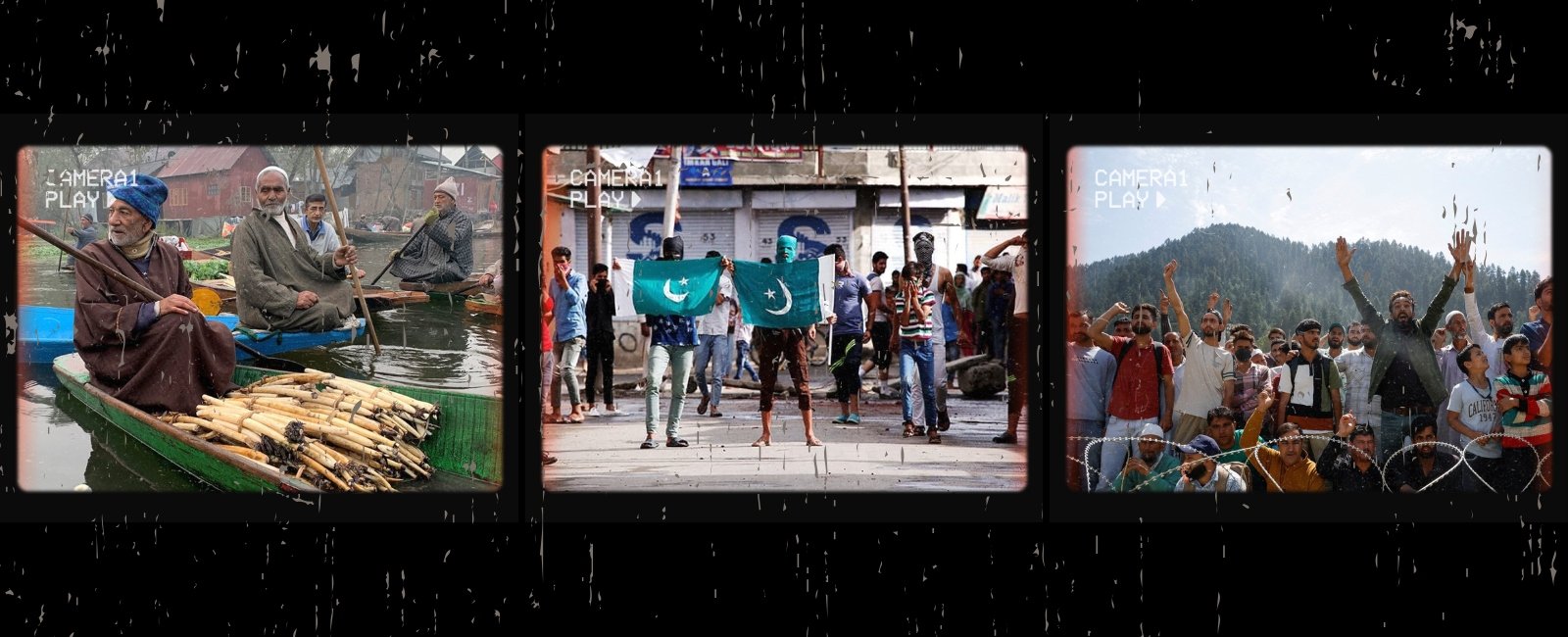Why the UN must appoint a special envoy on Kashmir
Pakistan must involve key nations and human rights groups, not just the Trump administration, in addressing Kashmir issue

If you ask ordinary Pakistanis about the significance of February 5, most will quickly respond that it is Kashmir Solidarity Day (KSD). If you then ask how they will observe this day, some will say it’s a holiday, and they’ll spend time at home, while many will begin criticising the Kashmir policy of the ruling elite. Many Pakistanis now believe that Kashmir has already been sold out, leaving them uncertain about how to mark the KSD. This is the new dilemma for Kashmiris: while Pakistanis are their biggest supporters, they no longer trust the Kashmir policy of their state due to the U-turns taken by leaders from General Ayub Khan to General Musharraf and, later, General Qamar Javed Bajwa. Even those who have made long speeches on this day do not fully understand the history of the day itself.
The first KSD was observed on February 28, 1975, following a call from Pakistani Prime Minister Zulfiqar Ali Bhutto. This was in response to an accord reached between the then Indian prime minister Indira Gandhi and Kashmiri leader Sheikh Abdullah, who gave up Kashimir's right to self-determination. This violated the Shimla Agreement, which Bhutto and Indira had signed on July 2, 1972.
In that accord, the Pakistani and Indian premiers agreed that the charter of the United Nations (UN) would govern relations between the two countries. Both sides also agreed to respect the line of control in Jammu and Kashmir, resulting from the ceasefire of December 17, 1971. The agreement also called for the repatriation of prisoners of war (POWs), a final settlement of the Jammu and Kashmir dispute, and the resumption of diplomatic ties between the two countries through talks.
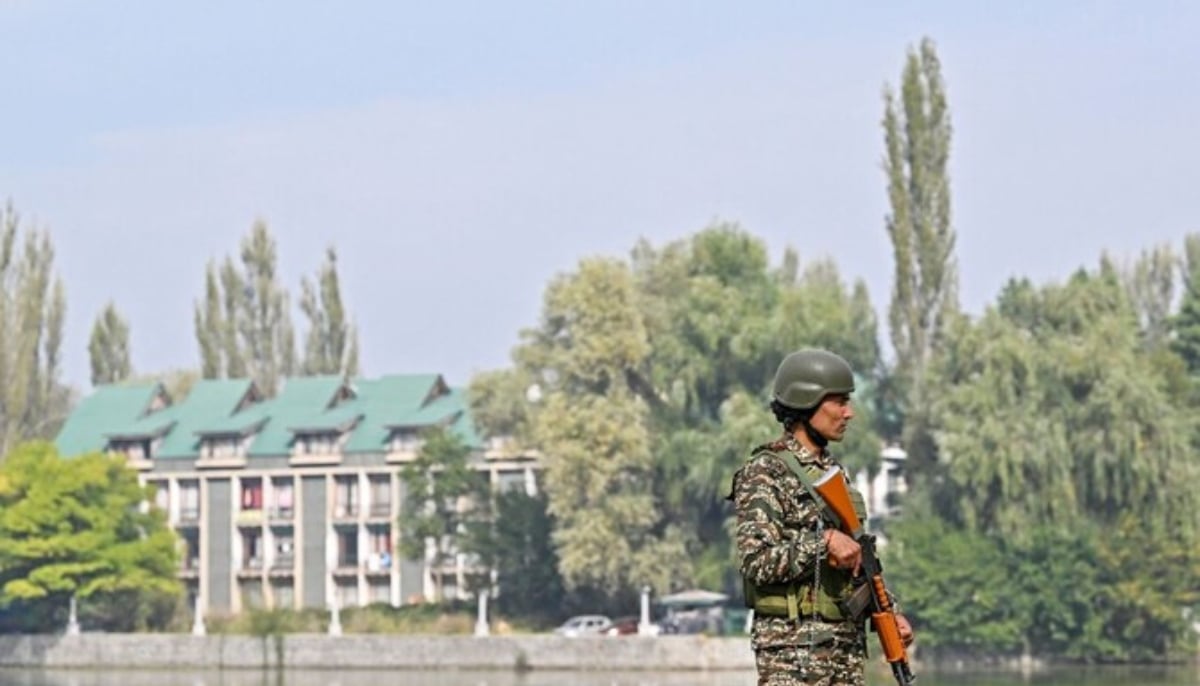
As a result, over 90,000 Pakistani POWs were released, and diplomatic relations were restored, but the Kashmir dispute was left unresolved. Bhutto rejected the Indira-Abdullah agreement of February 24, 1975, as the Kashmiri leader became chief minister by dropping the demand for a plebiscite under UN resolutions. Kashmiri leader Mir Waiz Muhammad Farooq also rejected this accord, demanding the implementation of UN resolutions. Bhutto called for a shutdown in Indian Illegally Occupied Jammu and Kashmir (IIOJK) on February 28, 1975. Abdullah was stunned by the historic response from Kashmiris against his agreement with India.
India hanged Kashmiri leader Maqbool Bhatt in Tihar Jail, Delhi, on February 11, 1984. Within days, India quietly occupied peaks in Siachen in April 1984 under "Operation Meghdoot," violating the Shimla Agreement. The then-Pakistan president General Zia-ul-Haq attempted to resolve the Siachen dispute by meeting Indian prime minister Rajiv Gandhi in Delhi in December 1985, but no breakthrough was achieved.
Another bilateral summit occurred in 1989 when Prime Minister Benazir Bhutto and Rajiv met in Islamabad. Both young leaders attempted to reach an agreement on the withdrawal of troops from the Siachen Glacier but were unsuccessful. Benazir came under fire from the Inter-Services Intelligence (ISI) -sponsored opposition alliance, the Islami Jamhoori Ittehad (IJI). They accused her of betraying Kashmir's cause and called for the observance of KSD on February 5, 1990. Benazir supported the call, thwarting IJI’s effort to use the IIOJK issue against her.
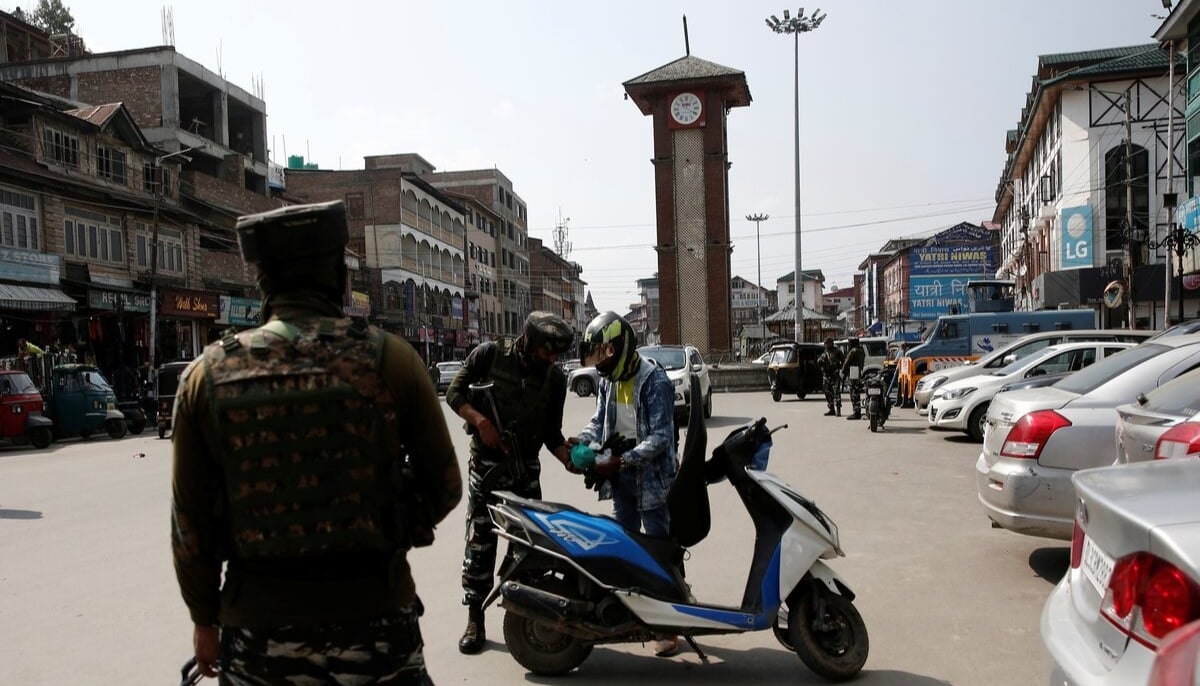
Notably, it was the Pakistan Muslim League-Nawaz (PML-N) supremo Nawaz Sharif who declared the Pakistan Peoples Party (PPP) leader a security threat, alongside Ejaz-ul-Haq, whose father, General Zia, had lost the Siachen to India. Benazir never survived the deep state’s conspiracies, and president Ghulam Ishaq Khan dismissed her government on August 6, 1990. Nawaz became prime minister after a rigged election. His government officially declared February 5 as KSD in 1991. Within two years, Nawaz also became a victim of the deep state’s machinations and was sent packing. Politicians began using the Kashmir issue against one another, and the final blow to the cause came from the Kargil misadventure by General Pervez Musharraf in 1999. The main objective behind this fiasco was to sabotage the Kashmir initiative taken by Indian PM Atal Behari Vajpayee and the then Pakistani premier Nawaz.
Following his dismissal, Musharraf ousted Nawaz from the Prime Minister's Office and had him arrested. The former special forces commando never allowed Nawaz to advance in resolving the Kashmir dispute. He tried to open backdoor channels with Indian prime minister Manmohan Singh from a defensive position but failed miserably because of the lack of consensus on his Kashmir policy within the military he led. The general abandoned the UN resolutions on Kashmir, and his policy was a clear violation of Article 257 of the Constitution. The article states, "When the people of the State of Jammu and Kashmir decide to accede to Pakistan, the relationship between Pakistan and that State shall be determined by the wishes of the people of that State." This article quietly gave Kashmiris a third option, but today, speaking about an "Independent Kashmir" is unacceptable to both the Indian and Pakistani governments.
Pakistan does mark KSD with all the zeal, but it lacks a clear roadmap for the IIOJK issue. The country missed many opportunities to resolve the dispute, either due to political instability at home or betrayals by their Western allies. In 1948, the two nations engaged in their first war, which came to an end following the UN intervention. And then, it was India that moved the UN for intervention because Pakistani forces were in a strong position. Pakistan agreed to a ceasefire, trusting the UN. When the UN failed to implement its Security Council’s resolutions, two Bengali prime ministers started serious efforts to resolve the Kashmir dispute by putting diplomatic pressure on India.
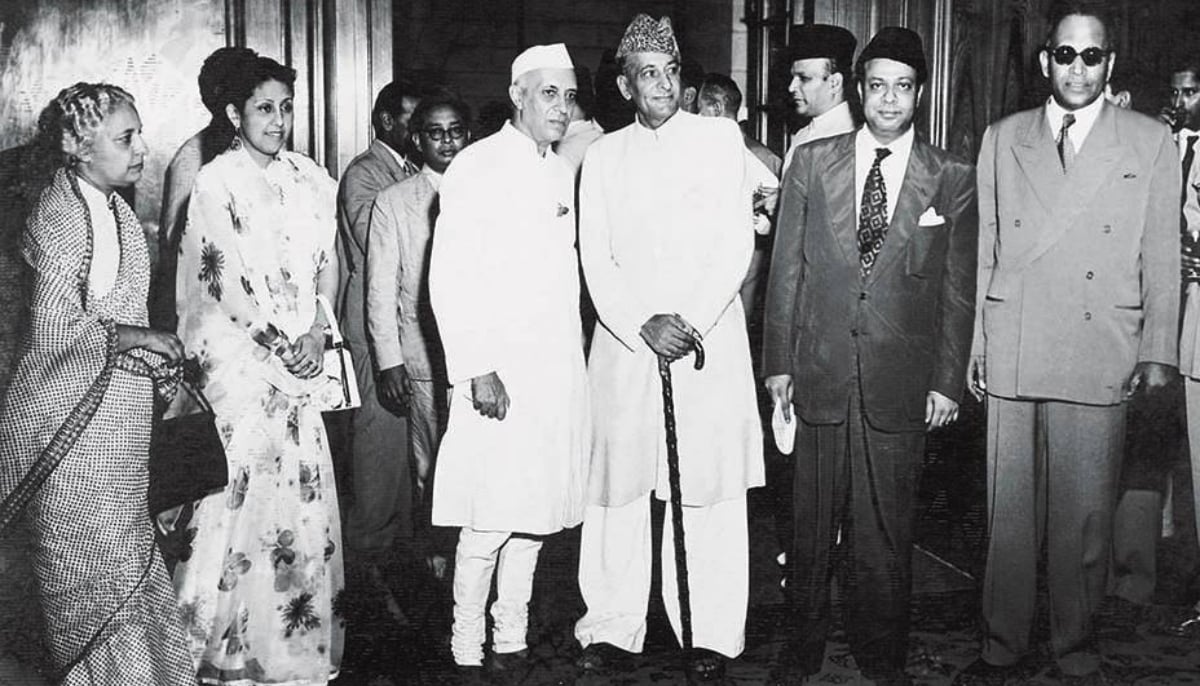
Prime Minister Muhammad Ali Bogra started talks with Jawaharlal Nehru in 1953 because India was under pressure from an uprising in IIOJK after the arrest of Kashmiri leader Abdullah. Nehru deceived Bogra through talks. He used the talks to quell a rebellion in IIOJK. Later, another Bengali prime minister, Hussain Shaheed Suharwardi, made a secret deal with US president Eisenhower to help resolve the dispute. Eisenhower sought an airbase near Peshawar to spy on the former Soviet Union. Suharwardi allowed Americans to use the Badaber airbase in return for a promise that the US would force the UN to implement the Security Council’s resolutions.
Kashmir returned to the UN agenda, but Suharwardi resigned due to behind-the-scenes pressure from the army chief of the time General Ayub Khan, who later overthrew the civilian government in the 1958 coup. Pakistan got another opportunity in 1962 during the India-China war. The Chinese sent a message to Pakistan to take over Srinagar because India moved its troops from Pakistani borders to China’s borders. A former CIA officer, Bruce Riedel, wrote in his book “JFK’s Forgotten Crises” that US president John F Kennedy and British premier Harold Macmillan barred Pakistan from attacking IIOJK in 1962.
They promised to resolve the dispute soon through peaceful means but never fulfilled their promise. Pakistan and India fought two more wars in 1965 and 1971, but the Kashmir dispute was not resolved. I have already explained what happened to the initiatives taken by Benazir in 1989, Nawaz in 1999, and Musharraf in 2007. Former army chief General Qamar Javed Bajwa started backdoor diplomacy through his ISI chief Lieutenant General Faiz Hameed in 2019. They were quietly following the Musharraf formula in violation of Article 257. Those were the days when US president Donald Trump had made an offer to Pakistan Tehreek-e-Insaf (PTI) founder Imran Khan to mediate between India and Pakistan over the IIOJK issue on July 23, 2019.
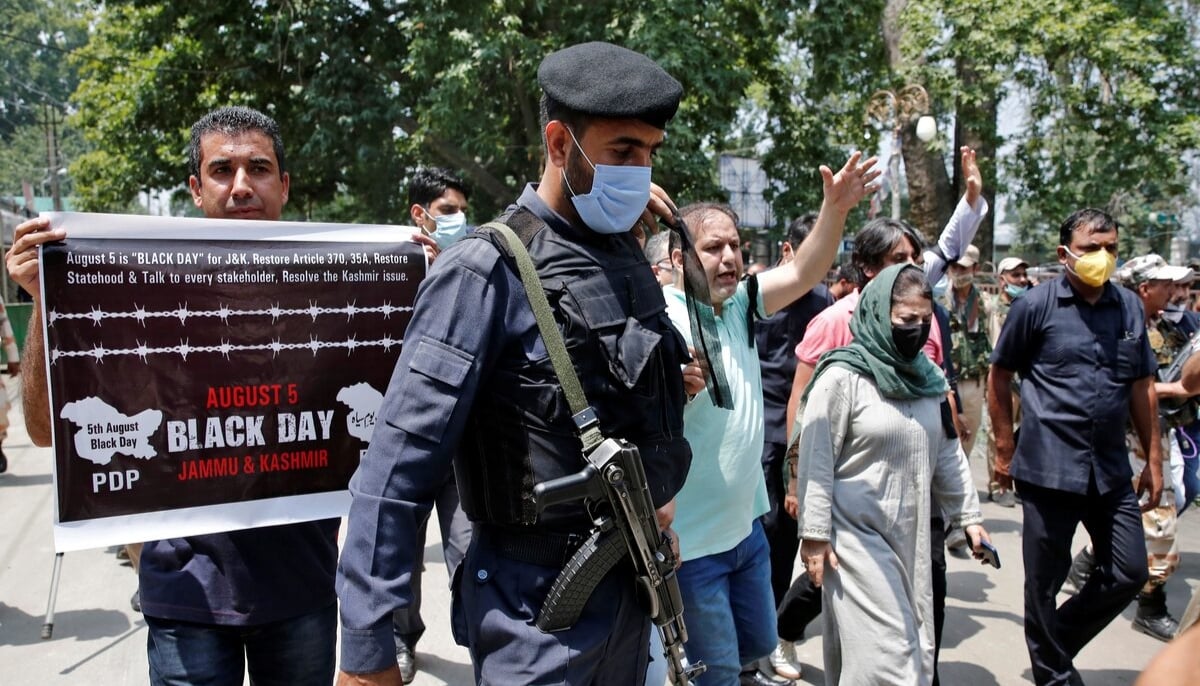
Imran and Bajwa had great expectations of premier Narendra Modi, which were dashed when his government revoked the special status of IIOJK under Article 370 of the Indian constitution on August 5, 2019. Pakistan never publicly accepted that move, but many insiders believe that PTI's Shah Mehmood Qureshi, who was the foreign minister at the time, had repeatedly warned the military brass against trusting India. However, Bajwa never listened to anyone. He again engaged India through a back channel and agreed on a ceasefire on the Line of Control in February 2021. He even invited Narendra Modi to visit Pakistan in 2022. His policy created misunderstandings in the minds of Kashmiris in the IIOJK, including Syed Ali Shah Gilani. Bajwa's Kashmir plan was not implemented due to another political crisis that emerged in 2022 after his differences with the then-premier Imran Khan.
On the other hand, the Kashmir policy pursued by the current Chief of Army Staff (COAS) General Asim Munir differs from Bajwa's, but progress cannot be made unless ordinary Pakistanis are satisfied with a national policy on Kashmir. Last month, Indian army chief General Upendra Dwivedi claimed that 60% of terrorists killed recently in the disputed region were Pakistanis. In his annual Army Day press conference, General Dwivedi blamed Pakistan for sponsoring terrorism in India.
A few days after this press conference, Prime Minister Shehbaz Sharif reached Bhimber in Azad Jammu and Kashmir (AJK) and condemned the remarks of the Indian army chief. Diplomatic circles in Islamabad are concerned about the sudden rise in tension between Islamabad and Delhi. Just a few months ago, Indian External Affairs Minister S. Jaishankar attended the SCO Summit in Islamabad and expressed gratitude for the hospitality extended by his Pakistani hosts before his departure.
What happened between October 2024 and February 2025? One European diplomat told me that the Indian side is genuinely concerned about the rise of attacks on their security forces in IIOJK, while at the same time, Islamabad is accusing India of sponsoring attacks on Chinese nationals in Pakistan. The two South Asian nuclear powers fought three major wars and one minor war in Kargil over the disputed territory. Can these two nuclear powers resolve this dispute through another war? The answer is a big NO. So, why are these two nuclear powers not ready to start peace talks?
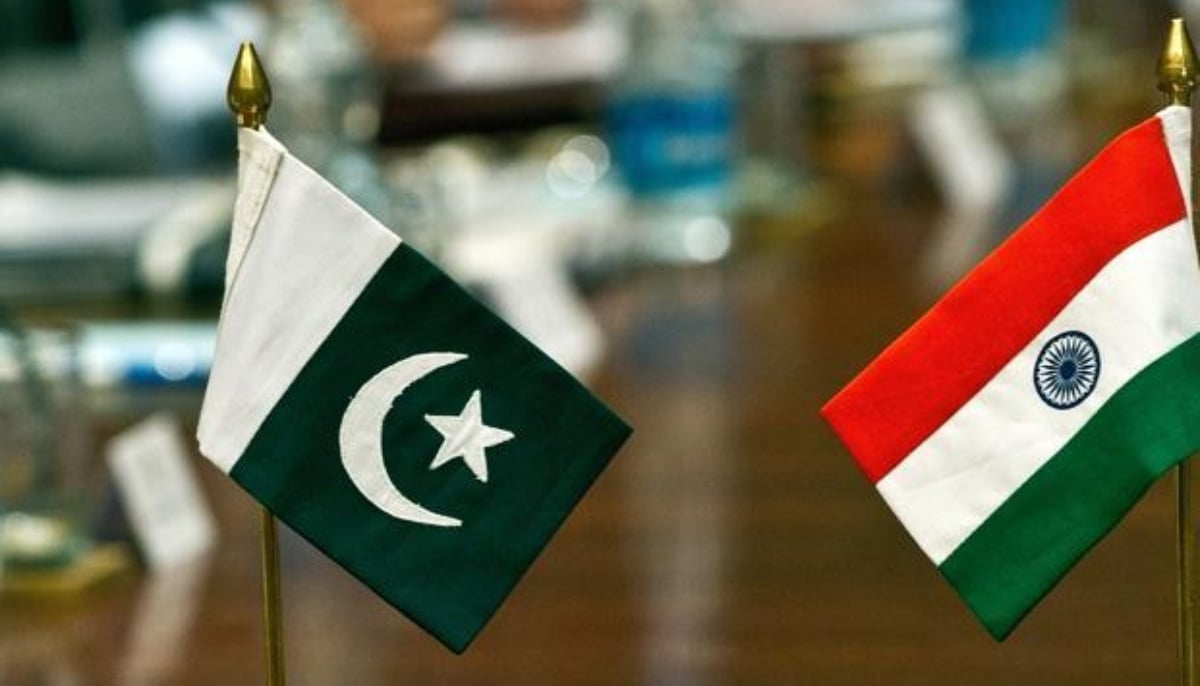
We can trace the roots of a new tension between India and Pakistan to a detailed story published by The Washington Post on December 31, 2024. The story is about India’s shadow war with Pakistan, in which Indian intelligence agencies are reported to have killed many members of the Khalistan and Kashmiri resistance in different Pakistani cities. According to the US newspaper, no Indian nationals were involved in these targeted killings. Instead, Indians hired Pakistani and Afghan hitmen to kill Sikh and Kashmiri activists, who had been wanted in India years ago but had been living quiet lives in recent years. The story provided Pakistan with an opportunity to take advantage of the tension between India and Canada over the killing of Hardeep Singh Nijjar.
Pakistan blamed Indian intelligence for Canada-like target killings in Lahore and other cities. Some Indian political analysts think that Shehbaz Sharif is trying to play the Kashmir card to divert attention from the political crises in Pakistan. Others say that this is a very bad time to play the Kashmir card because the Champions Trophy is about to start. The Indian cricket team is not playing matches in Pakistan but in the UAE. The captain of the Indian cricket team, Rohit Sharma, has been barred from attending the inauguration ceremony of the Champions Trophy in Lahore. Indian analysts say that instead of trying to invite Rohit Sharma to Lahore, the government of Shehbaz Sharif organised dozens of anti-India rallies and seminars all over Pakistan on February 5.
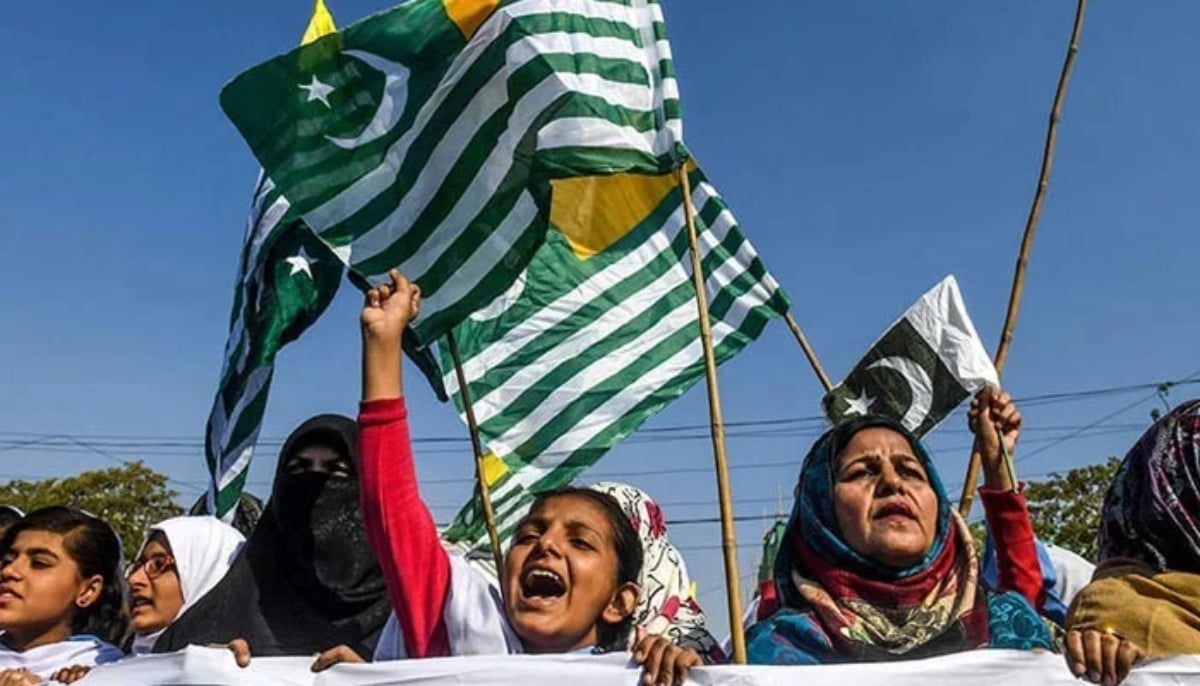
The fact is that a large number of Kashmiris in AJK are very disappointed these days. They rejected some new laws against freedom of assembly and freedom of expression imposed in AJK. The Ministry of Interior placed the name of a Jammu and Kashmir Liberation Front (JKLF) leader, Sajid Mehmood Siddiqui, on the Exit Control List (ECL) through a notification issued on January 22, 2025. Siddiqui belongs to the Yasin Malik group of JKLF. Malik is imprisoned in Tihar Jail, Delhi, but his group is not trusted in Pakistan, despite the fact that his wife is a Pakistani national. We can see the pictures of Malik hanging on many roads this Kashmir Solidarity Day, but why are his close friends not acceptable to the government of Pakistan?
That is why many Kashmiris see no difference between the policies of India and Pakistan. I recently met some members of the British Parliament in London who are under pressure from their Kashmiri-origin voters to support a campaign for an independent Kashmir. These parliamentarians are in contact with the Kashmiri intelligentsia in India and Pakistan. Who will be the ultimate losers if the government of Pakistan and the Kashmiri diaspora come face to face in London or Brussels? What will India and Pakistan do if more members of the EU Parliament and the US Congress also join the campaign for an independent Kashmir by the UK lawmakers? Instead of playing into the hands of warmongers, the two nuclear powers should show some maturity and start peace talks.
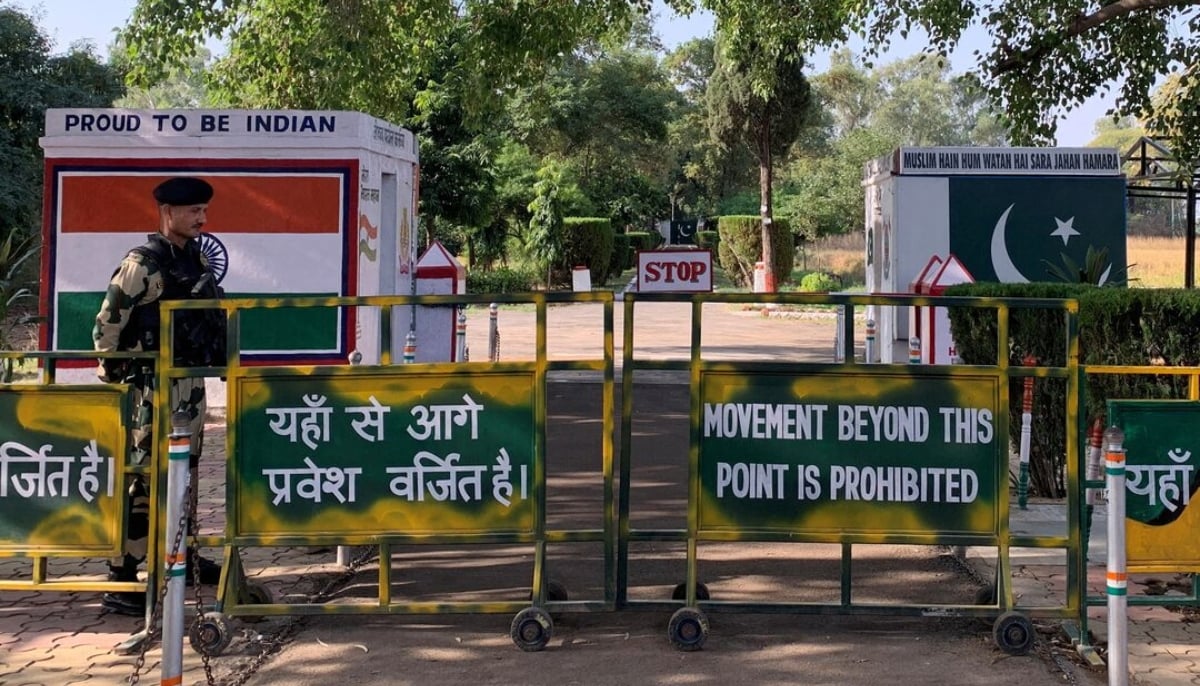
Pakistan must come up with a clear roadmap for Kashmir to build trust between the state of Pakistan and Kashmiris. Pakistanis always condemn human rights violations in IIOJK, but they should also respect human rights, at least in AJK. I know many Pakistani Americans who are lobbying in Washington these days for a breakthrough in Kashmir. Whenever Pakistan raises its voice against human rights violations in Indian-occupied Jammu and Kashmir, the Indian lobby highlights human rights violations in Pakistan and AJK. Pakistan should have the upper hand over India on human rights issues. Secondly, Pakistan must highlight the Kashmir dispute as a threat to the climate.
Kashmir is one of the most densely militarised zones in the world. The deployment of Indian and Pakistani troops in Siachen has accelerated glacier melt, impacting the environment. Pakistan and India should start talking about the demilitarisation of Siachen to protect this major source of water for both countries. Pakistan cannot rely solely on the Trump administration to push the UN into addressing the Kashmir dispute. It should engage other important countries and human rights organisations to come up with some workable solutions. One UK lawmaker recently told me that the UN Secretary-General could at least appoint a special envoy to explore possibilities for settling the dispute according to UNSC resolutions. He is planning to table a resolution in the UK Parliament for the appointment of a special envoy on Kashmir. Pakistan should also come up with a white paper on the legal status of Kashmir.
India’s occupation of Jammu and Kashmir is illegal under Article 42 of the Hague Regulations 1907, which states that “territory is considered occupied when it is placed under the authority of a hostile army.” The Israeli occupation of the West Bank and Gaza in 1967 is almost similar to the Indian occupation of Kashmir. However, there is a difference. Pakistan is not Lebanon, Syria, or Egypt, that cannot defend Palestinians, and Kashmir is not Gaza. The region is a nuclear flashpoint in South Asia. Another important aspect of this dispute is the so-called accession of territory to India in 1947, which was illegal.
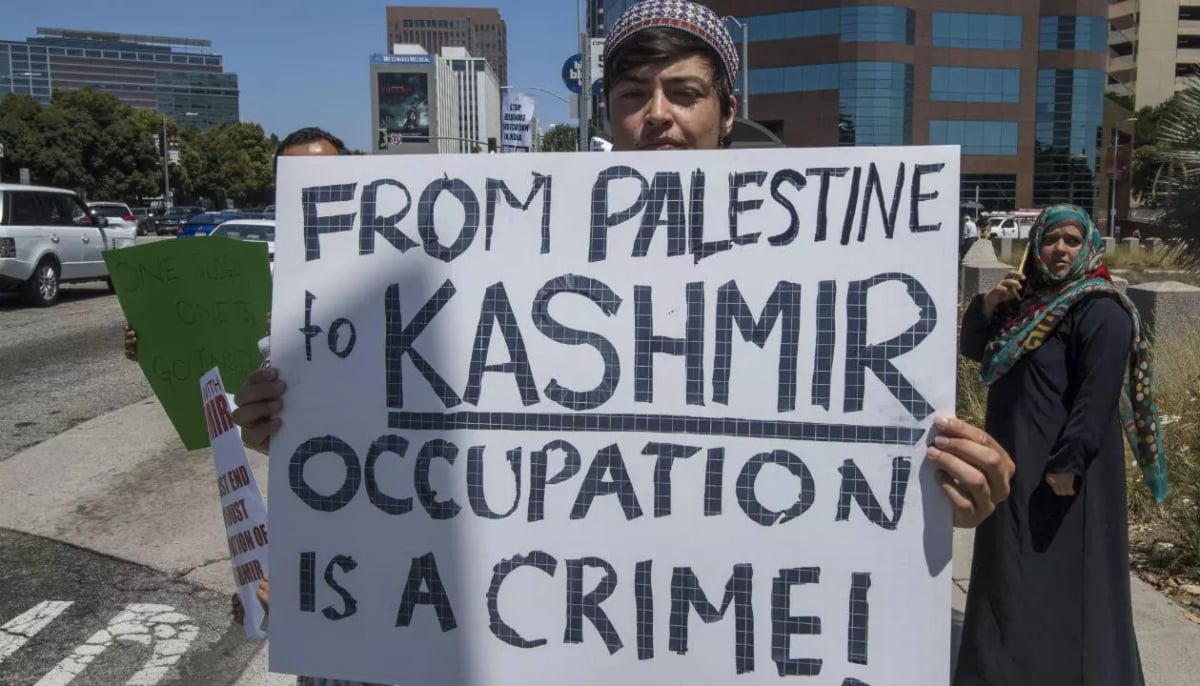
Many books written by Indian and British authors have exposed the illegalities behind that controversial accession. The two books by Alastair Lamb, Kashmir: A Disputed Legacy (1846-1990) and Incomplete Partition, provide sufficient evidence that India occupied the region in violation of international law. Indian author Prem Shankar Jha also exposed numerous illegalities in the accession of Kashmir in his book Kashmir 1947: The Origins of a Dispute. It is a great tragedy that Kashmir's case mirrors that of East Timor and South Sudan.
However, these two regions gained independence from foreign occupation, while Kashmiris are still waiting for the attention of international players. India claims to be the biggest democracy in the world, but its ideology of Akhand Bharat (undivided India) is a great threat to peace in the region. The Indian government displayed a map of Akhand Bharat on a wall of the Indian Parliament, depicting Pakistan, Bangladesh, Sri Lanka, Nepal, Myanmar, and Afghanistan as parts of India. The presence of this map in the Indian parliament is a negation of the UN Charter and democratic principles.
The Kashmir dispute can turn into a threat to international peace at any time. Pakistan only needs to highlight these contradictions on international forums, with a clear roadmap in hand. If the UN appoints a special envoy or a fact-finding mission on Kashmir, a breakthrough on the issue could be expected in the coming years.
Hamid Mir is a senior journalist, anchor, and columnist, associated with Geo News. He posts @HamidMirPAK
Header and thumbnail illustration by Geo.tv



